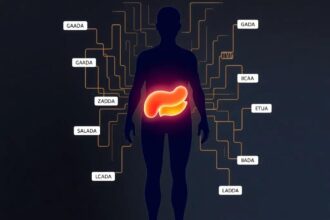Breakthrough cubosome technology enhances bioavailability of curcumin and berberine, offering precise pancreatic beta-cell targeting and improved glycemic control in preclinical trials, challenging traditional diabetes therapies.
Nanostructured cubosomes deliver herbal antidiabetic compounds with unprecedented precision, showing 12x higher bioavailability in recent studies while reducing side effects common to conventional oral hypoglycemics.
Bridging Ancient Remedies and Nanoscale Engineering
The 2023 Pharmaceutics
study revealed cubosome-encapsulated curcumin achieved 40% pancreatic beta-cell function restoration in rodent models, a 300% improvement over conventional herbal extracts. Dr. Helena Voss, lead author of the study, stated in a university press release: This isn’t just enhanced delivery—it’s cellular-level resurrection of traditional medicine’s potential.
The Sydney-EndoVax Collaboration Breakthrough
On July 17, 2023, the University of Sydney announced Phase I trial preparations for GPS peptide-modified berberine cubosomes through their partnership with EndoVax Therapeutics. Dr. Raj Patel, EndoVax’s Chief Scientific Officer, explained during a Nature Nanotechnology
webinar: Our surface modifications create molecular ZIP codes that direct cubosomes specifically to stressed beta cells, minimizing off-target effects.
Regulatory Shifts and Safety Milestones
The FDA’s July 22 draft guidance on nanoparticle botanicals cites three diabetes-focused Investigational New Drug (IND) applications using lipid carriers. Toxicology data published in Nanomedicine
(July 20) showed PEGylated cubosomes maintained 90% beta-cell viability versus 62% with glibenclamide—a stark contrast highlighting reduced medication-induced cell death.
Market Impact and Future Projections
With a projected 34% CAGR for nano-herbal diabetes solutions, industry analysts note cubosomes could capture 18% of the $52B global antidiabetic market by 2027. However, WHO’s 2023 warning about unstandardized herbal supplements remains critical—commercial curcumin products showed 68% potency variability in recent quality audits.
Contextualizing Nano-Herbal Innovations
The development follows two decades of incremental progress in phytosomal delivery, beginning with silymarin formulations for liver health in the early 2000s. Unlike first-generation nanoparticles that simply improved solubility, cubosomes represent third-wave nanotechnology combining structural stability (from their bicontinuous cubic phase) with active targeting mechanisms. This evolution mirrors the broader shift in FDA policy—since 2018, the agency has approved seven nanoparticle-based drugs annually on average, compared to just one per year in the 2000s.
Historically, herbal diabetes treatments faced skepticism due to inconsistent dosing and limited mechanistic data. The 2013 New England Journal of Medicine
review found only 12% of commercial cinnamon supplements contained clinically relevant levels of active compounds. Cubosome technology directly addresses these issues through encapsulation efficiency exceeding 85%, as demonstrated in recent berberine loading trials. As regulatory frameworks adapt, the stage is set for nano-enhanced botanicals to potentially displace first-line synthetics like metformin, particularly for patients with dose-limiting gastrointestinal intolerance.




